The Unforgiven
Two decades after events that shook the Gulf, thousands of men, women and children of Qatar’s Al-Ghufran clan are still paying the price for a failed coup in which they played no part
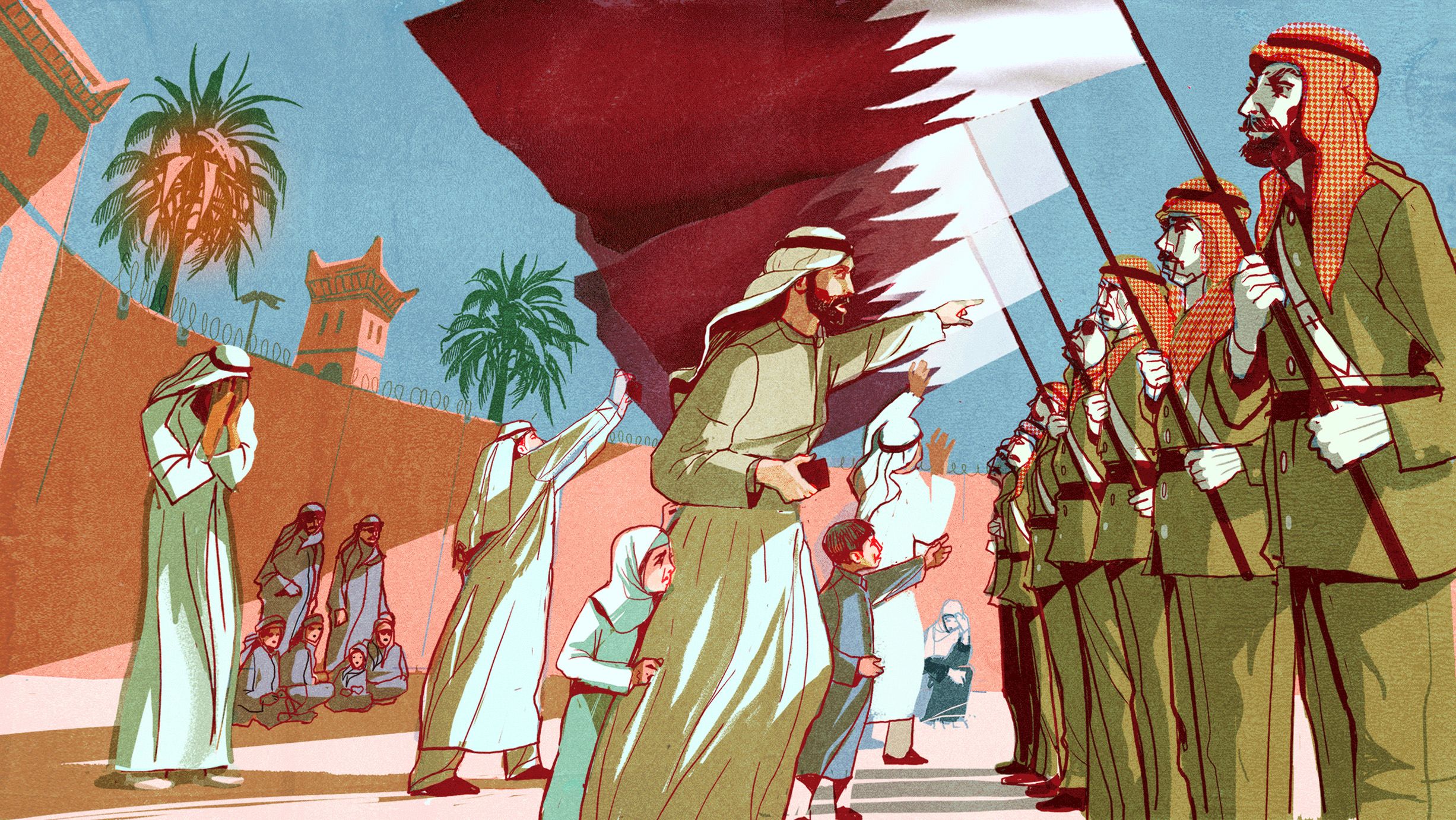
On the night of Feb. 14, 1996, Qatar’s security forces foiled what would have been the tiny Gulf state’s second coup in under a year.
In a bloodless takeover the previous June, Sheikh Hamad bin Khalifa Al-Thani, the 44-year-old crown prince, seized power while his 63-year-old father, Sheikh Khalifa, was out of the country. Now supporters of Sheikh Khalifa tried, and failed, to restore the deposed and exiled emir to power.
The coup ended without a shot being fired. Sheikh Hamad, recognized as Qatar’s new leader by Washington and the wider world, would remain unchallenged as emir until he stepped down and handed power to his fourth son, Sheikh Tamim bin Hamad Al-Thani, Qatar’s current ruler, in June 2013.
But the attempted overthrow would not be forgotten by Qatar’s ruling elite. Members of several Qatari tribes, loyal to the ousted emir, had been implicated in the plot, but in the years that followed one branch of the Al-Murra tribe, in particular, was singled out for persecution.
Over the past two decades thousands of members of the Al-Ghufran clan, innocent of any involvement in the failed coup, have been systematically stripped of their rights and their citizenship.
In Arabic, the name of the tribe means “forgiveness.” But to the vengeful house of Al-Thani, the men, women and children of Al-Ghufran — some born long after the events of 1996 — are the unforgiven.
Over the past several months, post has received numerous reports from Qatari nationals that the government has revoked their nationality (reftel A). According to various sources, the group most affected by these revocations is the Al-Ghufran branch of the Al-Murra tribe. This tribe has strong links to Saudi Arabia and the members are of Saudi origin. The 1996 failed coup attempt against the current emir was broadly supported by the Al-Ghufran branch. The government of Qatar claims that it had been compelled to revoke the nationality of these Qataris because they are dual nationals who have refused to comply with a long-standing requirement to surrender one of their two nationalities. Post has formally expressed concern about this practice and has requested a fuller explanation of this policy ...
'Homeless, stateless and without rights'
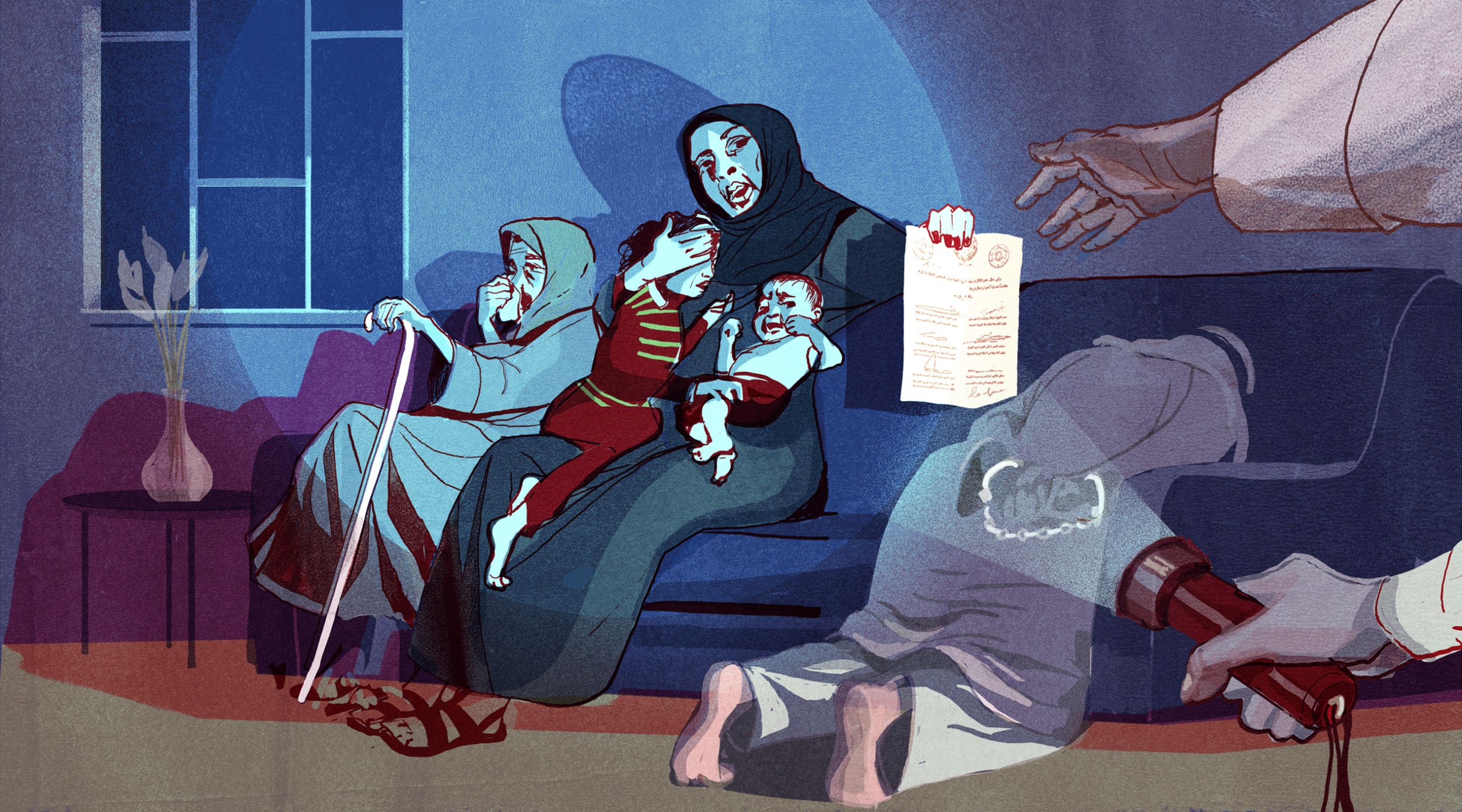
On the night of the failed counter-coup, 23-year-old Jaber Al-Kahla was ordered to report for duty as normal as a member of the elite Emiri Guard, the unit tasked with protecting Sheikh Hamad. The coup was foiled, but a few days later Al-Kahla was called before a superior officer.
“He asked me: ‘Are you member of the Al-Ghufran tribe?’ and I said yes. He listed some names of other men in my unit, who were my relatives, and asked if they also belonged to the tribe. I told him yes.
“He then said that we were suspended from work until further notice.”
It was the start of a nightmare for Al-Kahla and many of his compatriots that continues until today.
Al-Kahla’s suspension lasted for about eight months, which he spent at his home in Doha on full pay. At one point he was called back to base and interrogated about his whereabouts on the night of the failed coup. “I told them that I was in the headquarters of my unit, and that my colleagues could corroborate this.” He was held in detention for several days.
Eventually, his suspension was ended, but his ordeal was far from over. “Afterwards, I applied for leave for six days because I wanted to attend the marriage of one of my relatives in Saudi Arabia,” he says.
Leave was granted, and Al-Kahla duly traveled by car to the Kingdom’s Eastern Province with his wife and two children. But when they tried to return to Qatar through the border crossing at Abu Samra at the end of the family’s week away, “I was told that my citizenship was withdrawn and that I was not allowed to return to my homeland.”
Al-Kahla was just 23. He was forced to abandon his home in Doha and ever since has lived in Al-Mane’ya in Saudi Arabia, where he is unemployed.
“My vacation extended to 23 years,” he says. “Now I am 46 and I have 12 children, all of whom are deprived of their country.”
After all this time, he remains deeply wounded by the slur on his loyalty. “I was just a military man doing his job, defending my ruler. If I went back in time, I would do the same thing — defend the ruler of my country,” he says.
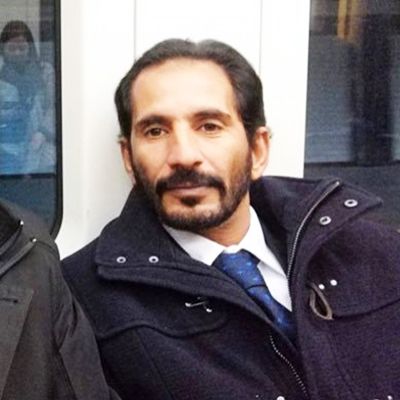
Jaber Al-Kahla, a member of the Emiri Guard, wasn't allowed back into Qatar.
Three months before the abortive coup, Saleh Jaber Al-Humran, another member of the Al-Ghufran tribe and a fellow Emiri guardsman, went absent from work for a month. On his return he was placed in detention and “on the day I got out, the so-called coup took place and I was accused of taking part in it.” He had left the base to visit his mother in her house in Doha.
“A friend told me after the coup that an arrest warrant had been issued against me,” he recalls. “I called a friend at the airport who confirmed that my name was indeed listed, so I decided to travel to Kuwait until things calmed down.” He drove to Kuwait and “since then I have been banned from returning to my country.”
Saleh Jaber Al-Humran talks about how he left for Kuwait after the coup.
Al-Humran and his family stayed in Kuwait for several months before moving to Abqaiq in Saudi Arabia’s Eastern Province, where they remain. He is unemployed.
At one point during his exile his mother, who still lived in Doha, fell ill and he tried to visit her. He flew in from Kuwait to Doha’s Hamad International Airport with his children. “But I was detained and barred from entering,” he says.
Saleh Jaber Al-Humran talks about his ordeal.
Despite Al-Humran explaining that he had a serious heart condition, “the airport authorities interrogated me for seven hours.” They sent him back to Kuwait where his condition deteriorated. He then flew to Saudi Arabia, where he underwent heart surgery at Prince Sultan bin Abdul Aziz Hospital in Al-Ahsa.
“It saddens me that my homeland denied my right and refused to carry out my operation close to my mother and my brothers, especially since my mother is old and cannot travel. I was not able to see her in person for four years.” The family members who remained behind in Qatar would not have been able to re-enter the country again if they had left for Saudi Arabia.
Saleh Jaber Al-Humran talks about how he wasn't allowed back into Qatar even to bury his brother.
When one of his brothers died, “the others were prevented from burying his body because there was no citizenship or any document proving his identity. His body stayed in the hospital for a day until a Qatari intervened to obtain a burial permit.” Al-Humran says he cannot mention the man’s name for fear that his act of kindness will be punished by the Qatari authorities.
Another member of the Al-Ghufran tribe who was stripped of his citizenship was Rashed Al-Amrah, a Qatari police officer. Now aged over 60, he vividly remembers the confusion in the days leading up to and immediately after the attempted counter-coup.
Rashed Al-Amrah speaks about his career in the military and police in Qatar.
Many Qataris, he says, were still coming to terms with the overthrow just eight months earlier of Sheikh Khalifa bin Hamad Al-Thani, who had ruled Qatar since 1972.
“Some of us did not believe what happened, especially that the son perpetrated the coup against father,” he says. “The father has great stature in the Islamic religion and specifically in Gulf communities.”
According to a contemporary report in The New York Times, the coup was the conclusion of “a long-simmering family dispute” that had seen father and son “feuding for more than two years.” Reuters reported that the coup “followed several weeks of a power struggle in which Sheikh Khalifa ... apparently tried to claw back powers he had passed on to his 45-year-old eldest son, who had been running the day-to-day affairs of the small Gulf oil state for the past three years.”
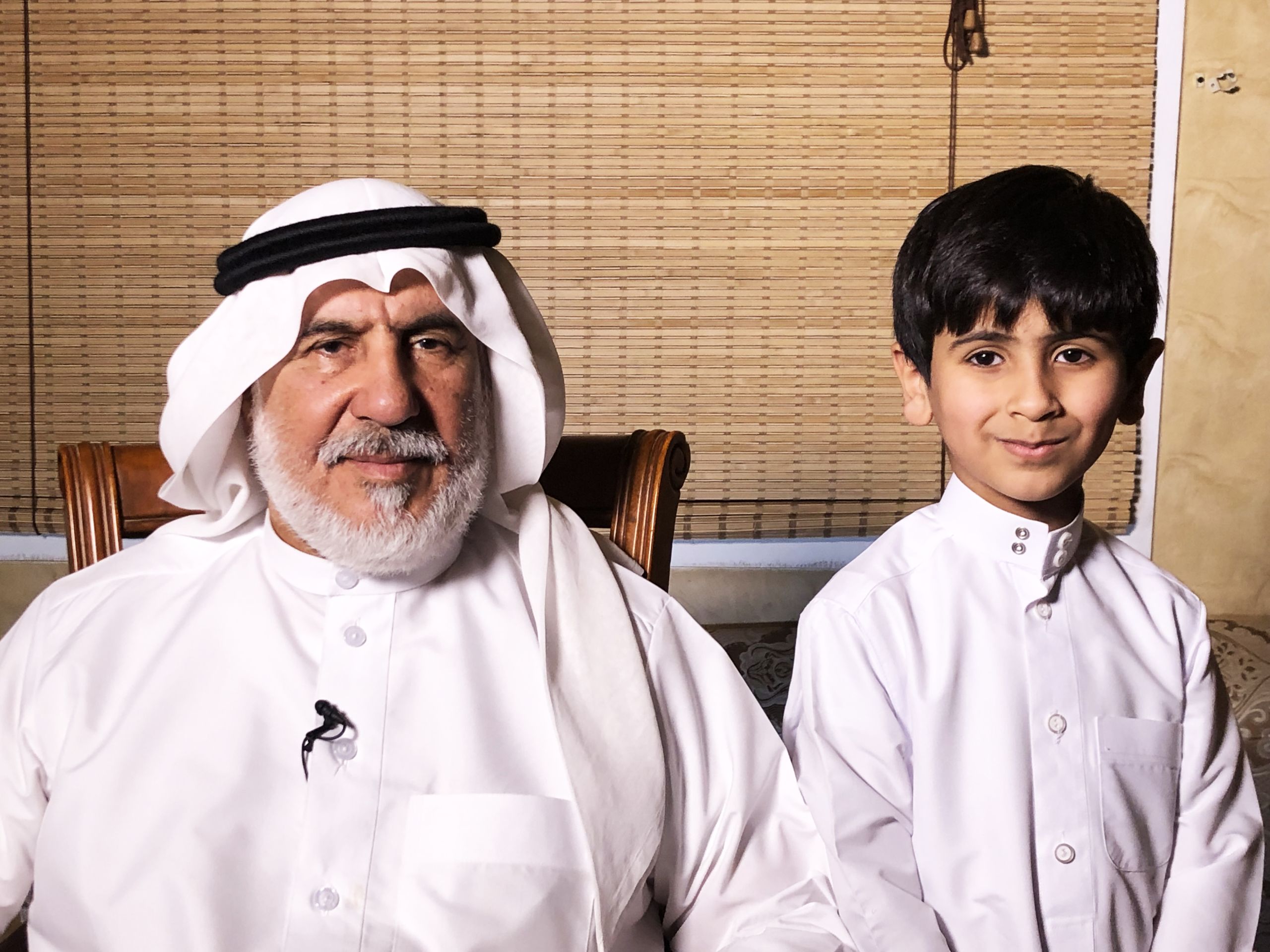
Rashed Al-Amrah with his grandson, also named Rashed.
In a brief televised address reported in newspapers around the world, Sheikh Hamad, the new emir, said: “I am not happy with what has happened, but it had to be done and I had to do it.”
His father, who had been overthrown in his absence while visiting Geneva, had publicly condemned what he called the “abnormal behavior of an ignorant man.”
On June 28, 1995, the UK’s Independent reported that “senior members of the ruling Al-Thani family, which numbers some 1,500 men, gathered in the capital, Doha, to pledge allegiance.” Nevertheless, recalls Al-Amrah, “there was hearsay and statements made by Sheikh Khalifa that he would return to Qatar and reinstall himself as emir.”
In a statement issued in Geneva, Sheikh Khalifa had said: “I am still their legitimate emir, whether it is for the royal family, for the people or for the army, and I will return home whatever it costs.”
“People were confused,” says Al-Amrah. “Should they support Sheikh Hamad or stand with their former legitimate ruler? Many Qataris protested against the coup, asserting that Sheikh Khalifa was the rightful ruler of Qatar.”
In February 1996 word spread that Sheikh Khalifa was planning to return to Qatar and had asked a number of his close relatives and supporters to meet him at Doha’s military airport. “Everyone,” says Al-Amrah, “was ready for the return of the legitimate ruler,” but he never came.
In the event the plan was discovered and foiled, and Sheikh Khalifa’s aircraft was prevented from taking off in France by the French authorities — some believe at the direct request of Sheikh Hamad. Sheikh Khalifa, who initially was offered and accepted sanctuary in Abu Dhabi, eventually moved to France. In 2004, he was allowed to return to live out his days in Qatar, where he died in 2016. His former subjects, however, were shown no such compassion.
Although he had played no part in the plot, Al-Amrah, who had traveled to Saudi Arabia for the Eid holidays and to visit relatives, found himself in difficulty. “The Qatari authorities began to investigate and search for those who were supporting Sheikh Khalifa,” he says. Suspicion fell on the members of several tribes, including the Al-Kaabi, Al-Suwaidi, Bani Hajjar, Al-Abdullah, Al-Mouhannadi, Al-Kuwari, even the Al-Thani — and the Al-Ghufran.
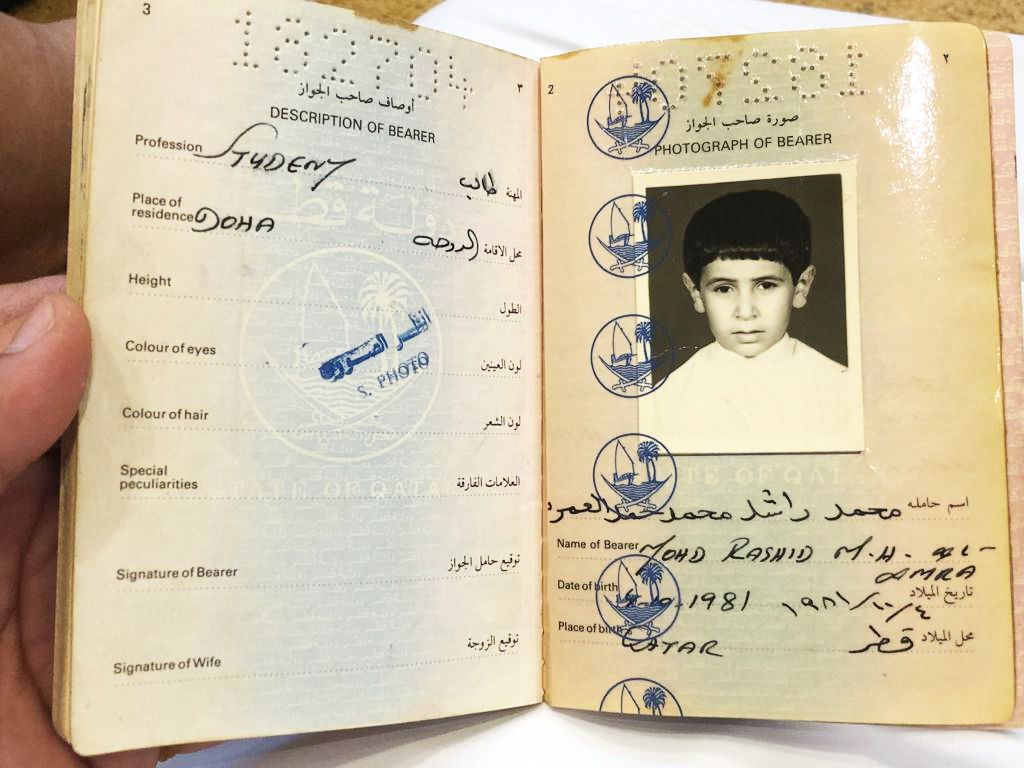
The Qatari passport of one of Rashed Al-Amrah's sons, Mohammed, which states his place of birth as Qatar.
Many members of the Al-Ghufran who were in the security or armed forces were arrested and imprisoned, as were members of other tribes. More than a dozen people would be sentenced to death for their part in the coup, although all would eventually be pardoned or have their sentences commuted.
“After Eid, we knew that there were orders to arrest and imprison all members of the Al-Ghufran clan attempting to return to Qatar,” Al-Amrah recalls. “I was afraid for myself and my family, so I decided not to return until things were cleared up. We also knew that any Qatari outside Qatar who could not return to his country for fear of what would happen could go to Sheikh Khalifa in Abu Dhabi where he would be welcomed.”
The deposed emir had been offered sanctuary in Abu Dhabi by Sheikh Zayed bin Sultan Al-Nahyan, then president of the UAE. “I headed to Abu Dhabi, where we were housed at the InterContinental Hotel and received a salary from Sheikh Khalifa,” says Al-Amrah. “I stayed in Abu Dhabi for four years.” After that he moved to the Saudi capital Riyadh.
Life for the members of the tribe who remained behind in Qatar became intolerable, as Rashed’s son, Jaber Al-Amrah, recalls.
“The Qatari Emiri Diwan issued a letter to all government departments in Qatar preventing them from dealing with Al-Ghufran tribe members. They were prevented from obtaining water and electricity subscription. They also banned charities from giving them aid, and the Ministry of Health was prevented from receiving any patient from the Al-Ghufran tribe.”
Tragedies as a result of this policy were inevitable. “The brother of one of the suspects in the so-called coup fell sick and had a seizure,” says Jaber Al-Amrah. “When he went to the hospital, they refused to receive him, and he stayed the whole day in the back of a pick-up truck until he died.”
After waiting for days outside the morgue, his family were able to bury him thanks only to a humanitarian intervention by a member of the ruling Al-Thani tribe.
Jaber Al-Amrah, who was born in Qatar, was 11 years old when the counter-coup was foiled. “I didn’t know what was happening,” he recalls. After traveling with his family to Saudi Arabia during the Eid holidays, he went into exile in Abu Dhabi with his father.
Jaber Al-Amrah speaks about what it was like to grow up without being able to return to his home.
“I could not go back to my home, my school and my friends in Qatar. I moved to a second country where I lived for six years and then left the Emirates and headed to Saudi Arabia.”
He still has the Qatari birth certificate proving that he was born in the maternity hospital in Doha, “and my name was added to my mother’s Qatari passport as a Qatari citizen. But after my father left Qatar, the citizenship of my mother, father and all my brothers and sisters was withdrawn.”
By necessity, Jaber Al-Amrah has forged a new life for himself. For four years he and his brothers continued their schooling in Abu Dhabi before returning to live with their relatives in Saudi Arabia, where they remain to this day. Now 33 and married with three children, he has a government job in Riyadh. Thanks to the intervention of the future King Salman, who was the governor of Riyadh at that time, Jaber Al-Amrah and his family were granted Saudi citizenship.
He will always be grateful for that, but he cannot forgive the loss of his birthright as a Qatari citizen. “I am not responsible for what happened in 1996. I did not even know who was the emir or the crown prince, or the meaning of a coup. I was a child when my citizenship was revoked and my rights violated, and I was stopped from continuing my studies and my normal life.”
All this, he believes, was as a result of the whim of one man. “The ruler of Qatar, Sheikh Hamad bin Khalifa, decided that I should live homeless, stateless and without rights,” he says.
Many of the unforgiven members of the Al-Ghufran tribe blame only Sheikh Hamad for the injustice that befell them. “You cannot blame all Al-Thani family members for a mistake that Hamad bin Khalifa Al-Thani committed,” says Jaber Al-Kahla. “They always treated their people in the best of ways.
“Our conflict is with an unjust ruler who violated the rights of the Al-Ghufran tribe, which then had 6,000 members. Now this number is much higher. By revoking their citizenship, they were deprived of their most basic right.
“If you are a member of the Al-Ghufran tribe, you cannot even get a SIM card for a mobile phone because you do not have citizenship and you cannot even object this — you have no recourse to the law to protect your rights.”

Jaber Al-Kahla, a member of the Emiri Guard, wasn't allowed back into Qatar.
Jaber Al-Kahla, a member of the Emiri Guard, wasn't allowed back into Qatar.

Rashed Al-Amrah with his grandson, also named Rashed.
Rashed Al-Amrah with his grandson, also named Rashed.

The Qatari passport of one of Rashed Al-Amrah's sons, Mohammed, which states his place of birth as Qatar.
The Qatari passport of one of Rashed Al-Amrah's sons, Mohammed, which states his place of birth as Qatar.
'A malicious and vengeful act by Hamad bin Khalifa'
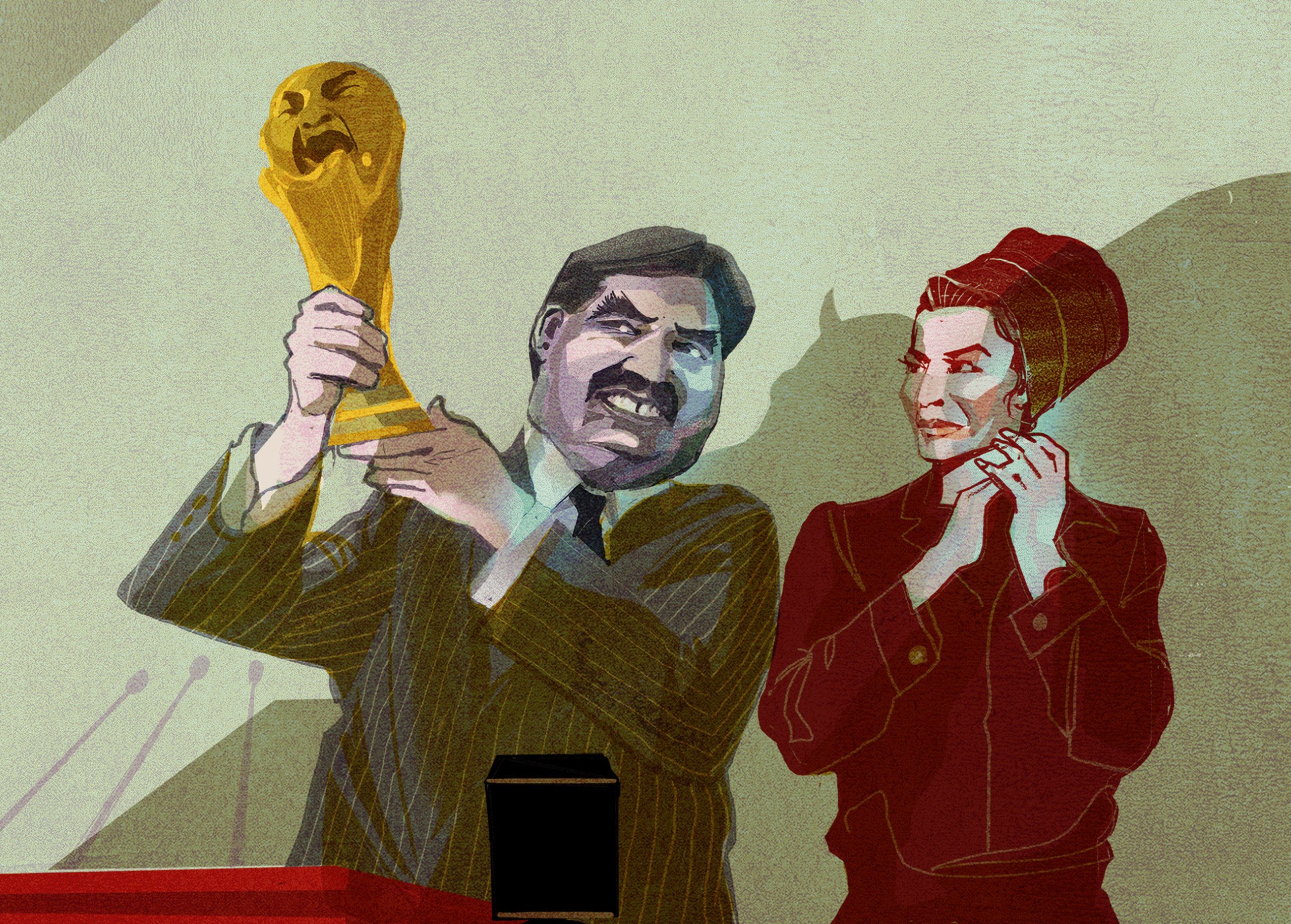
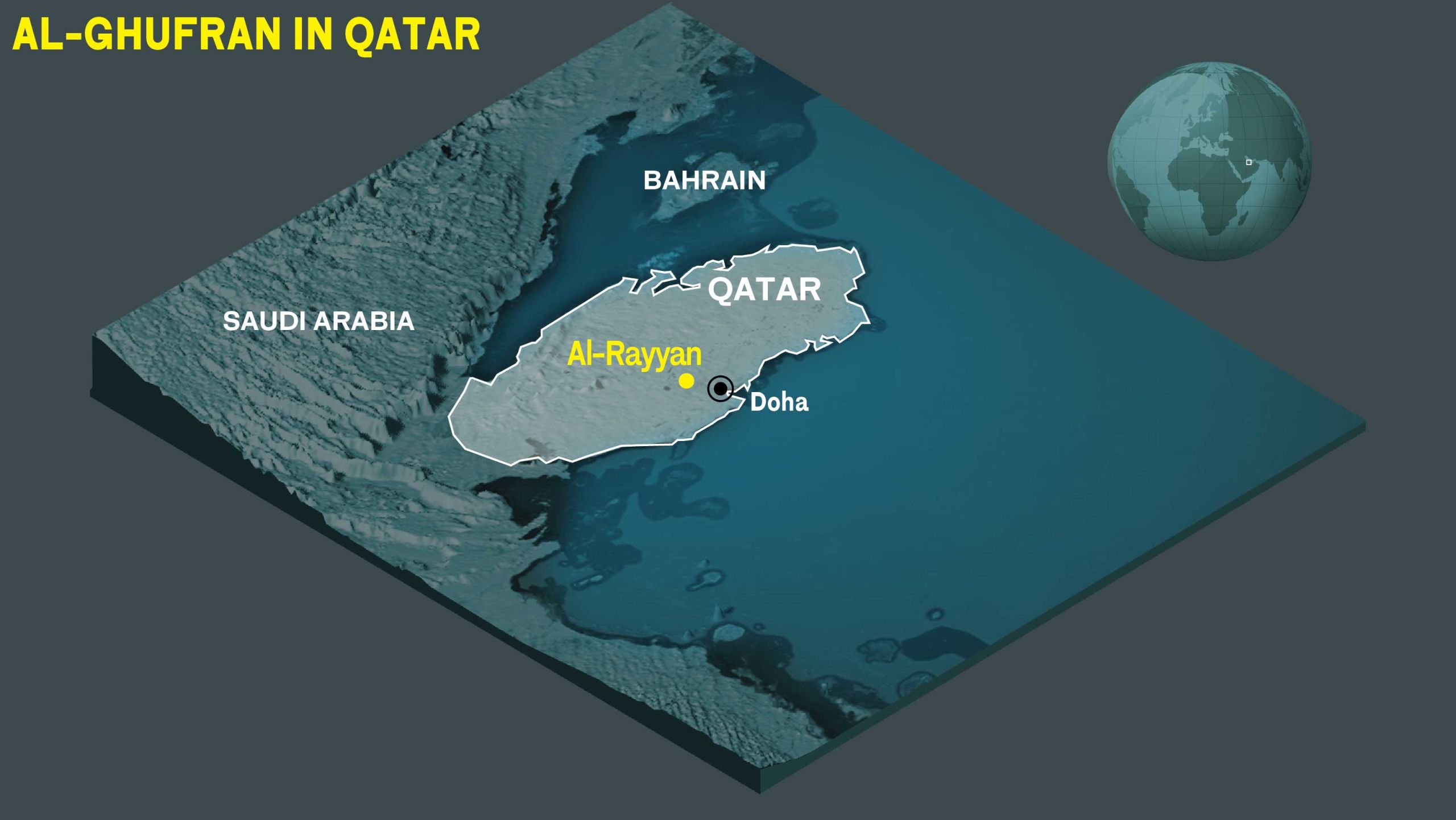
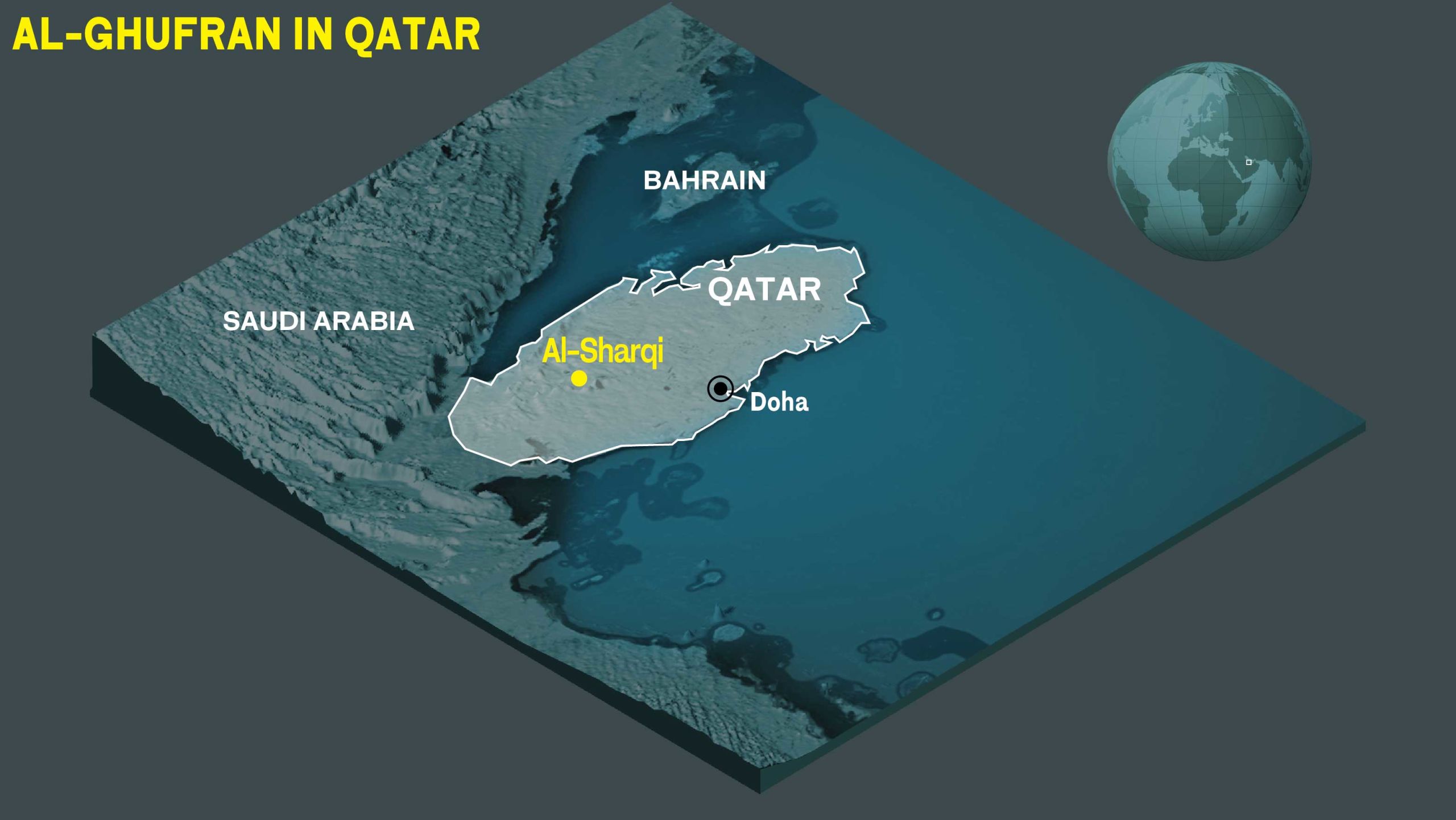
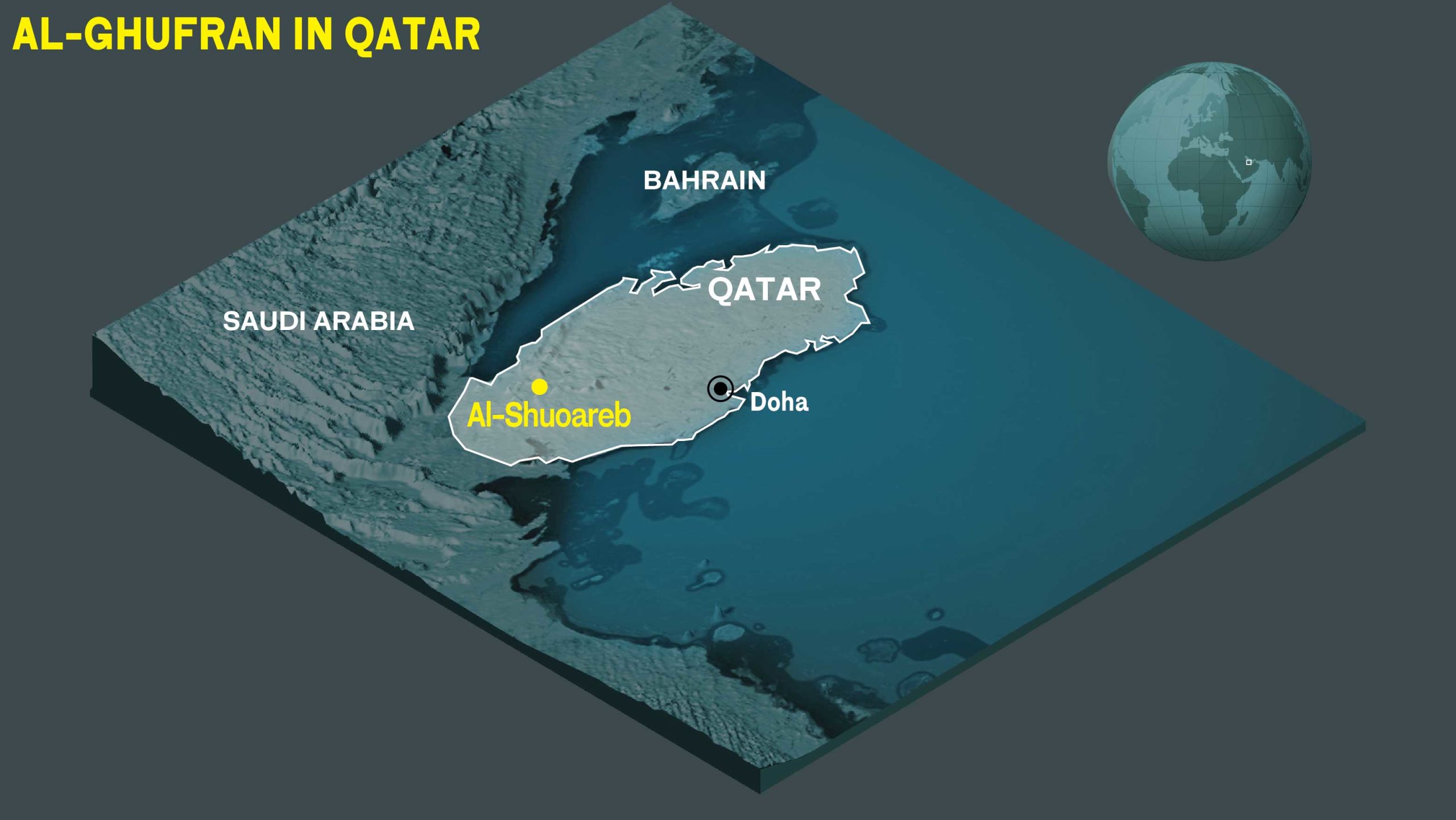
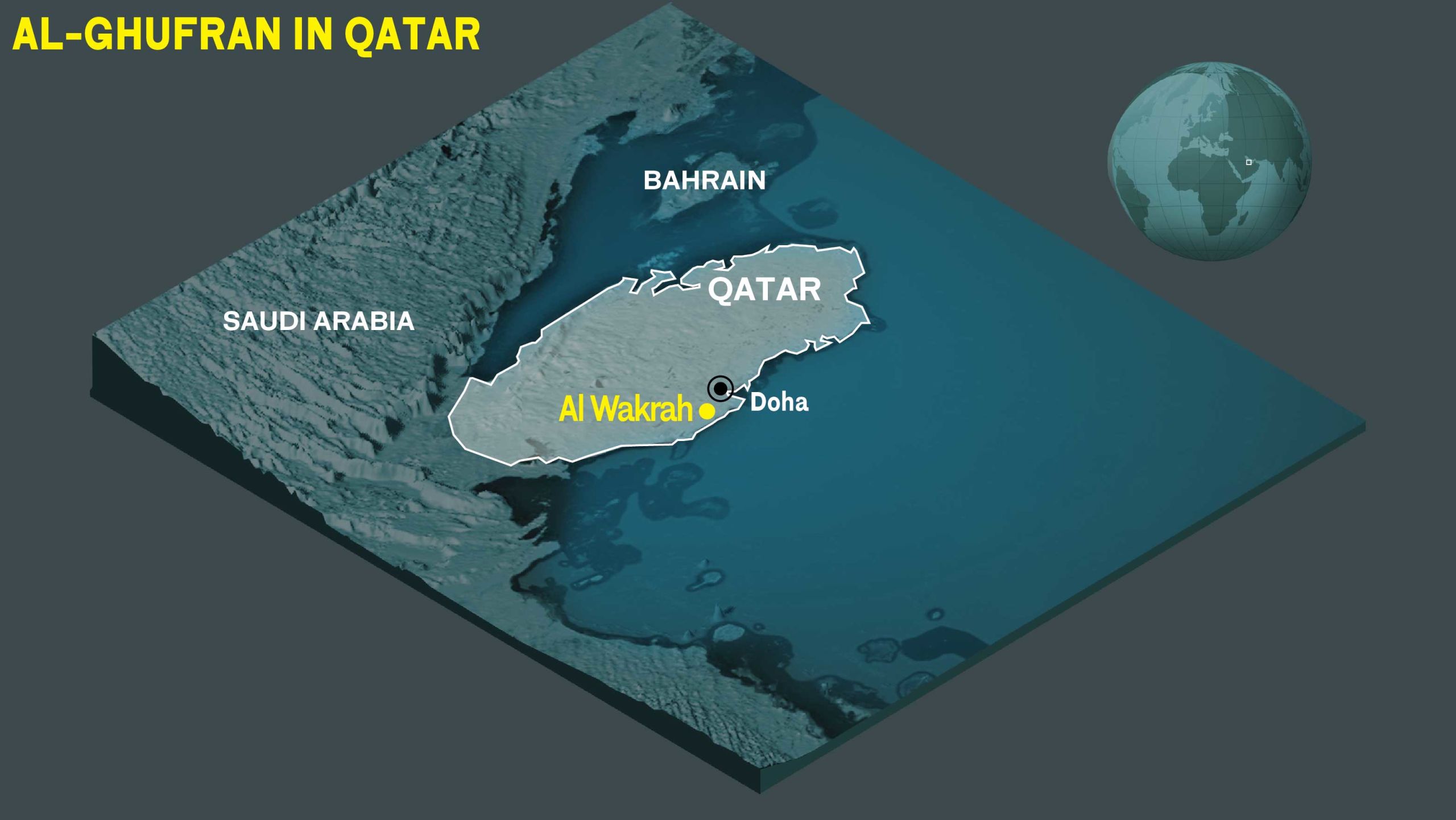
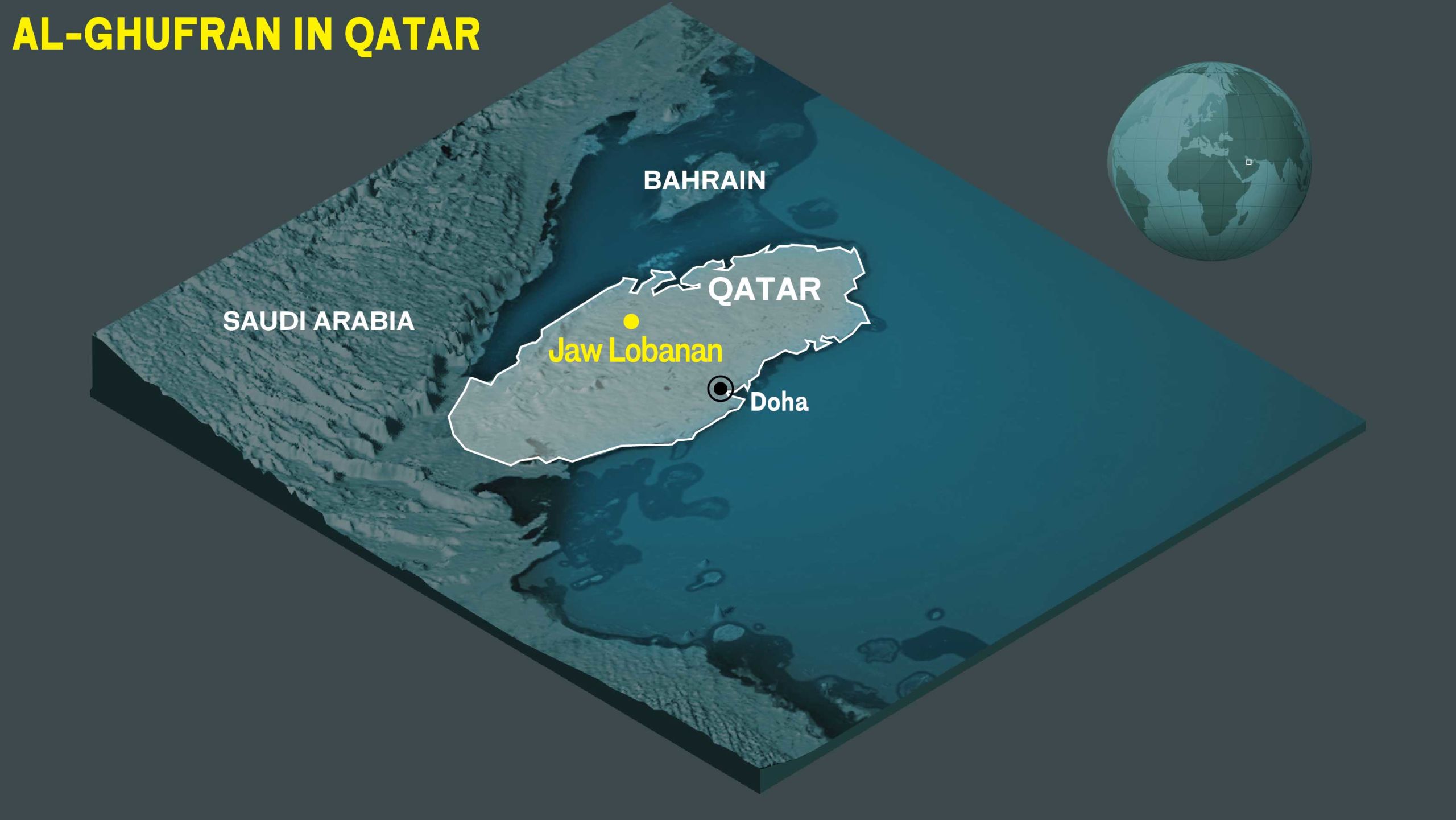
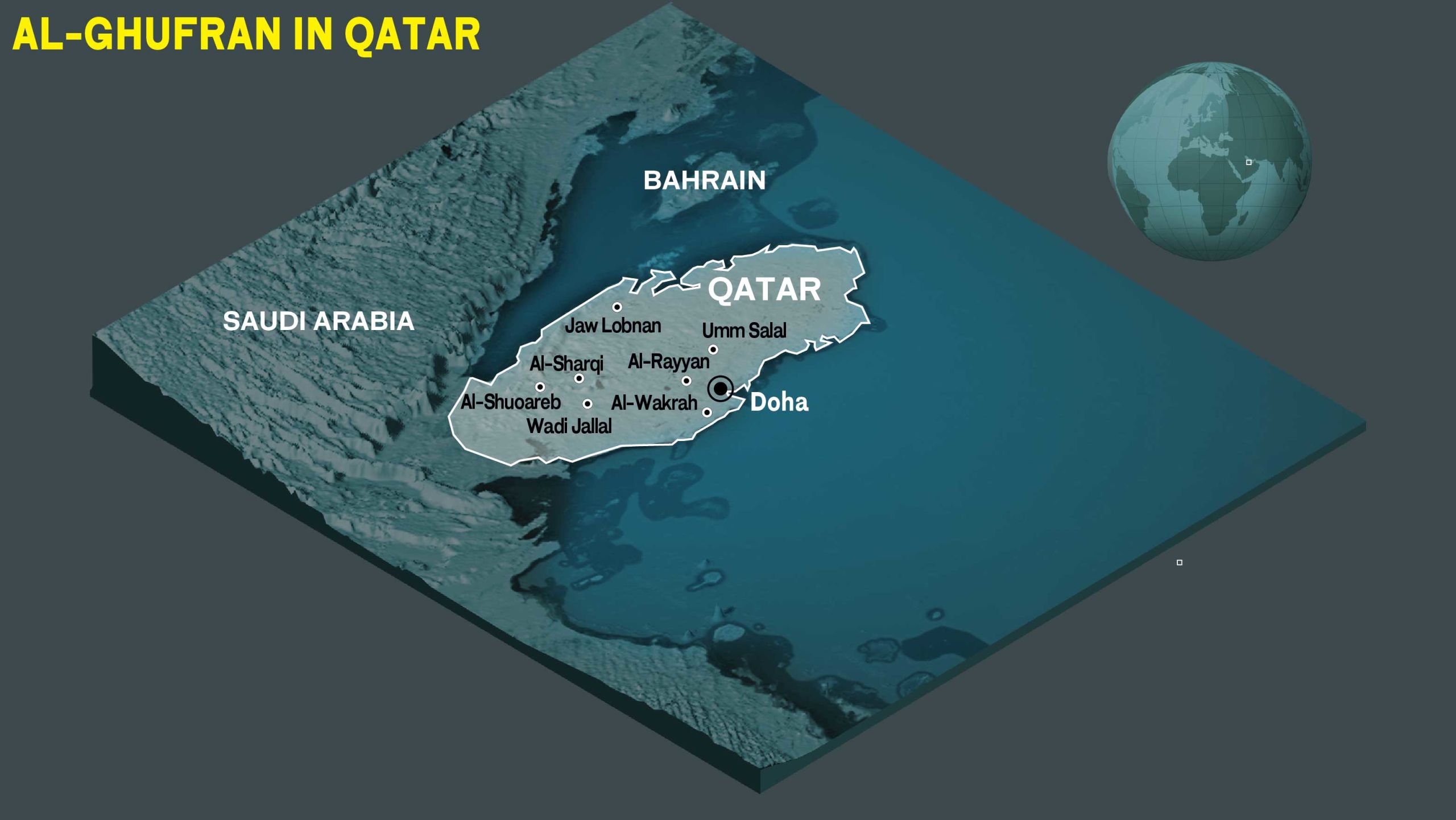
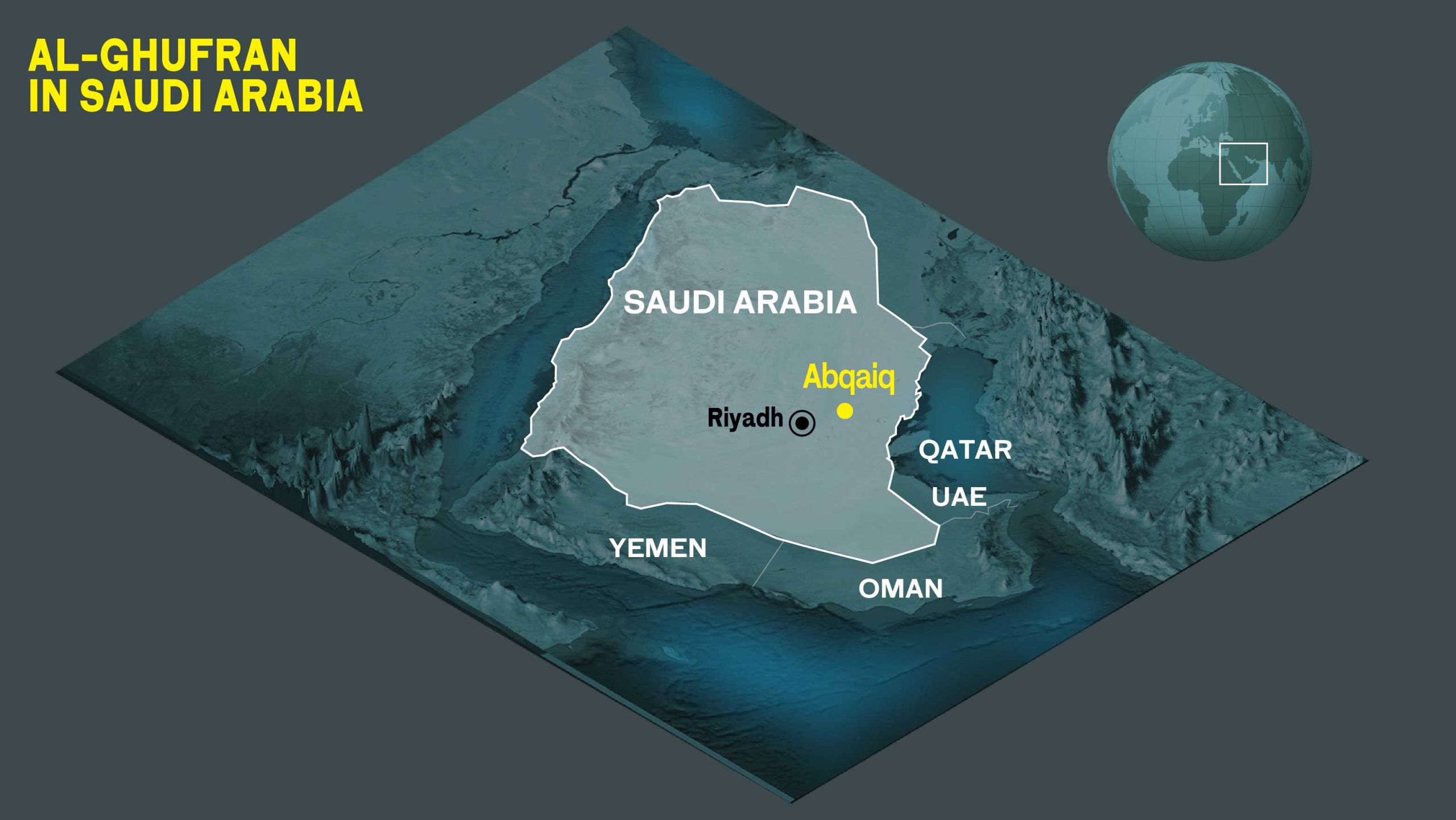
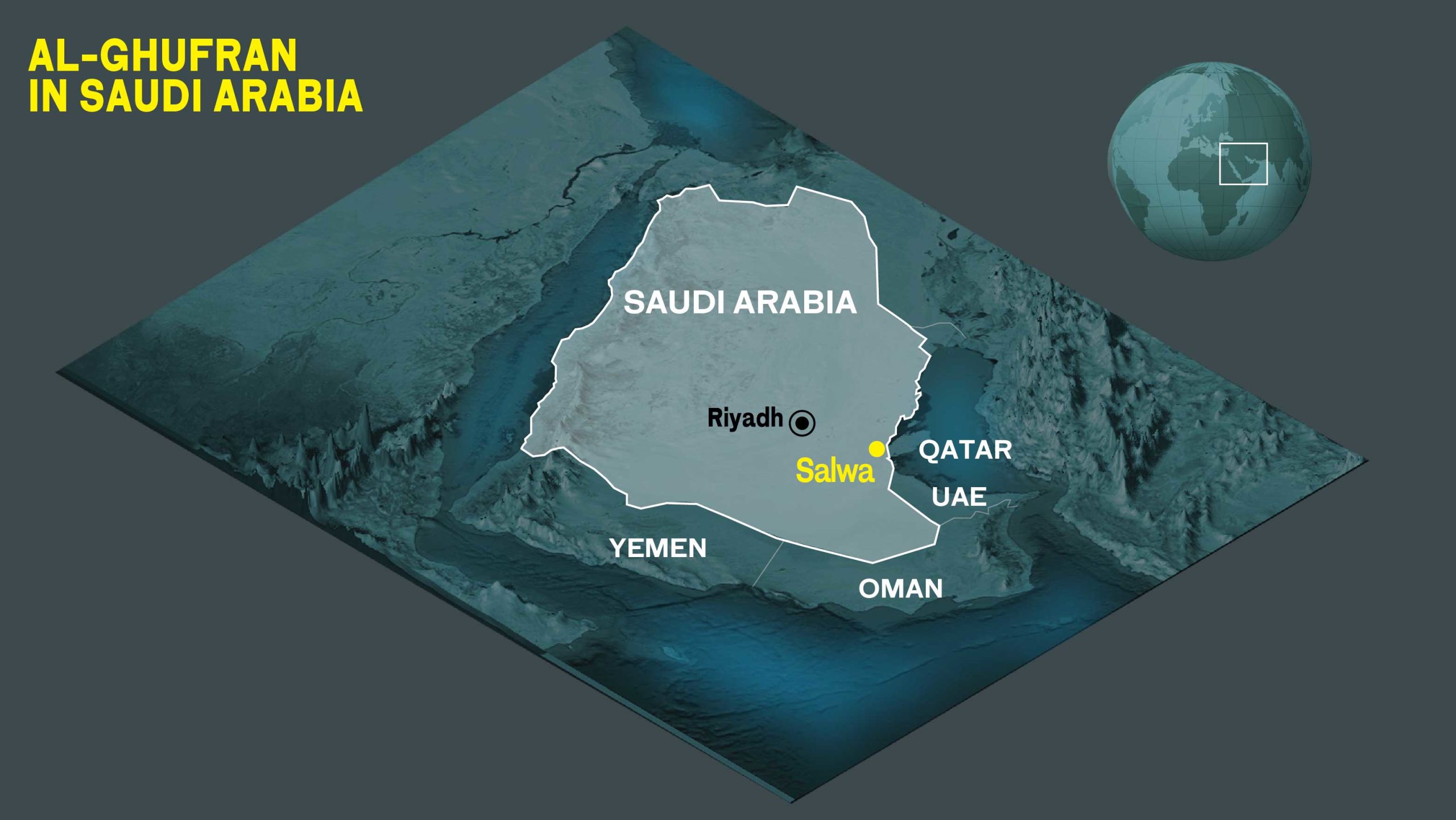
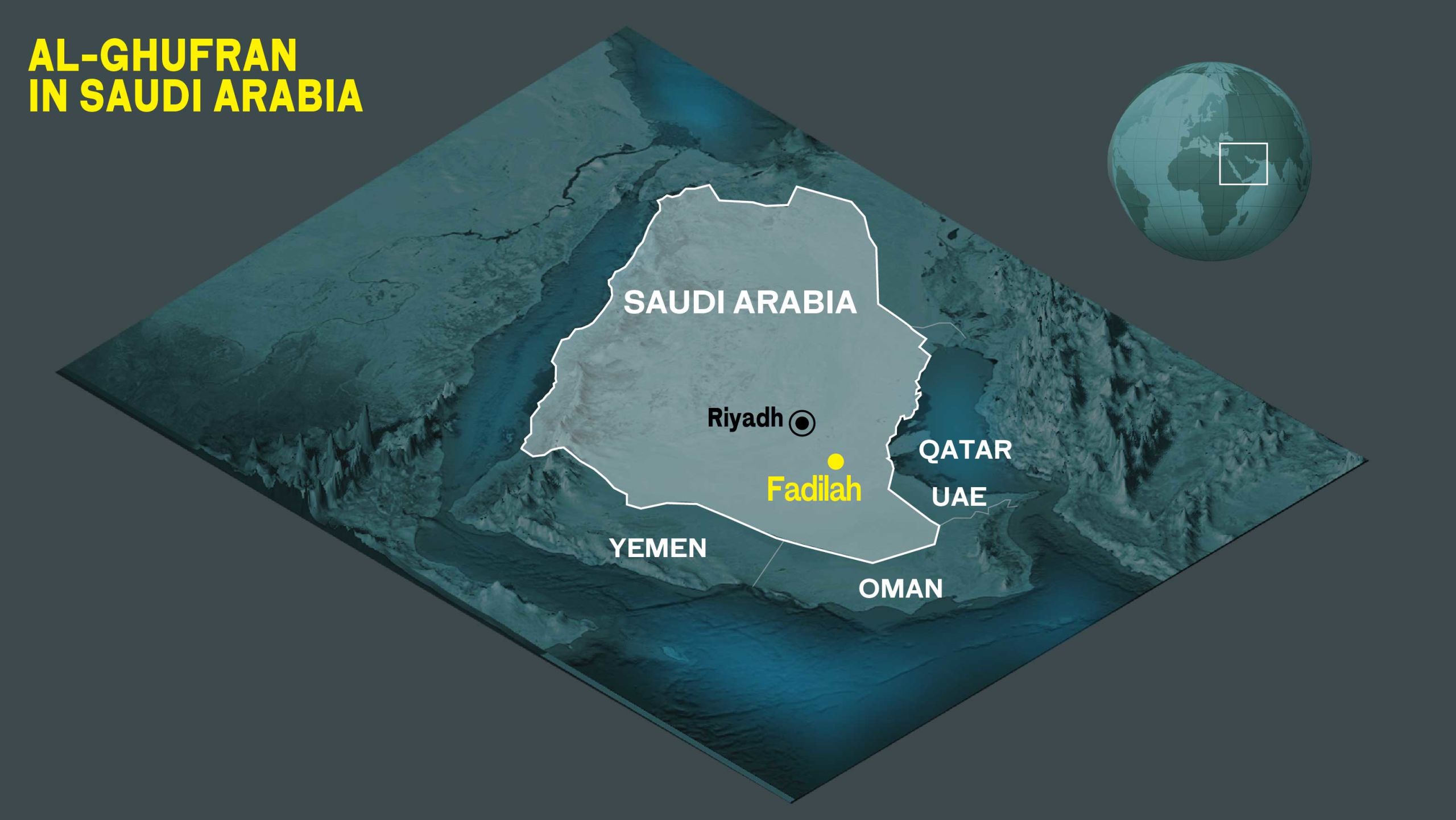
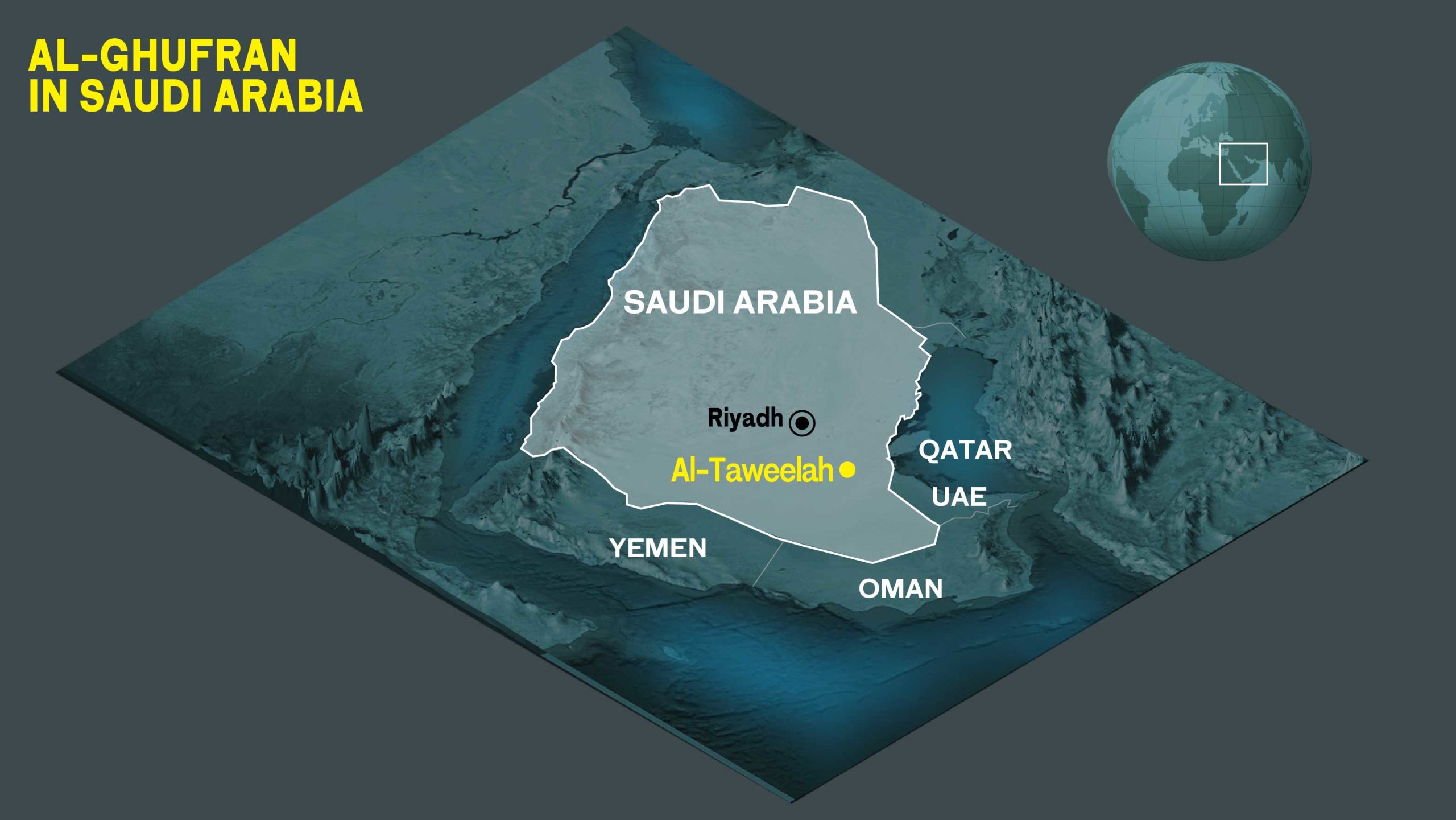
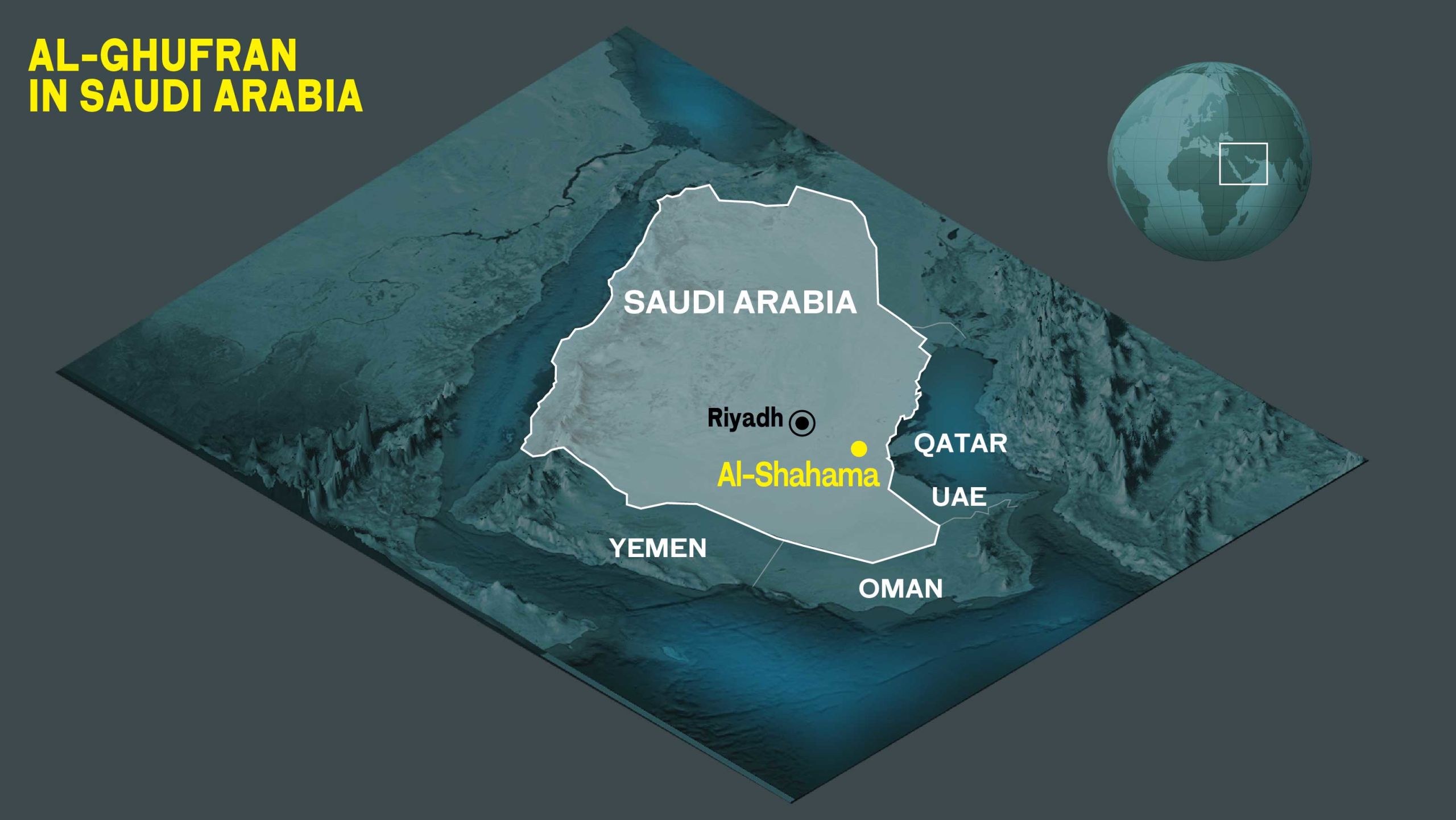
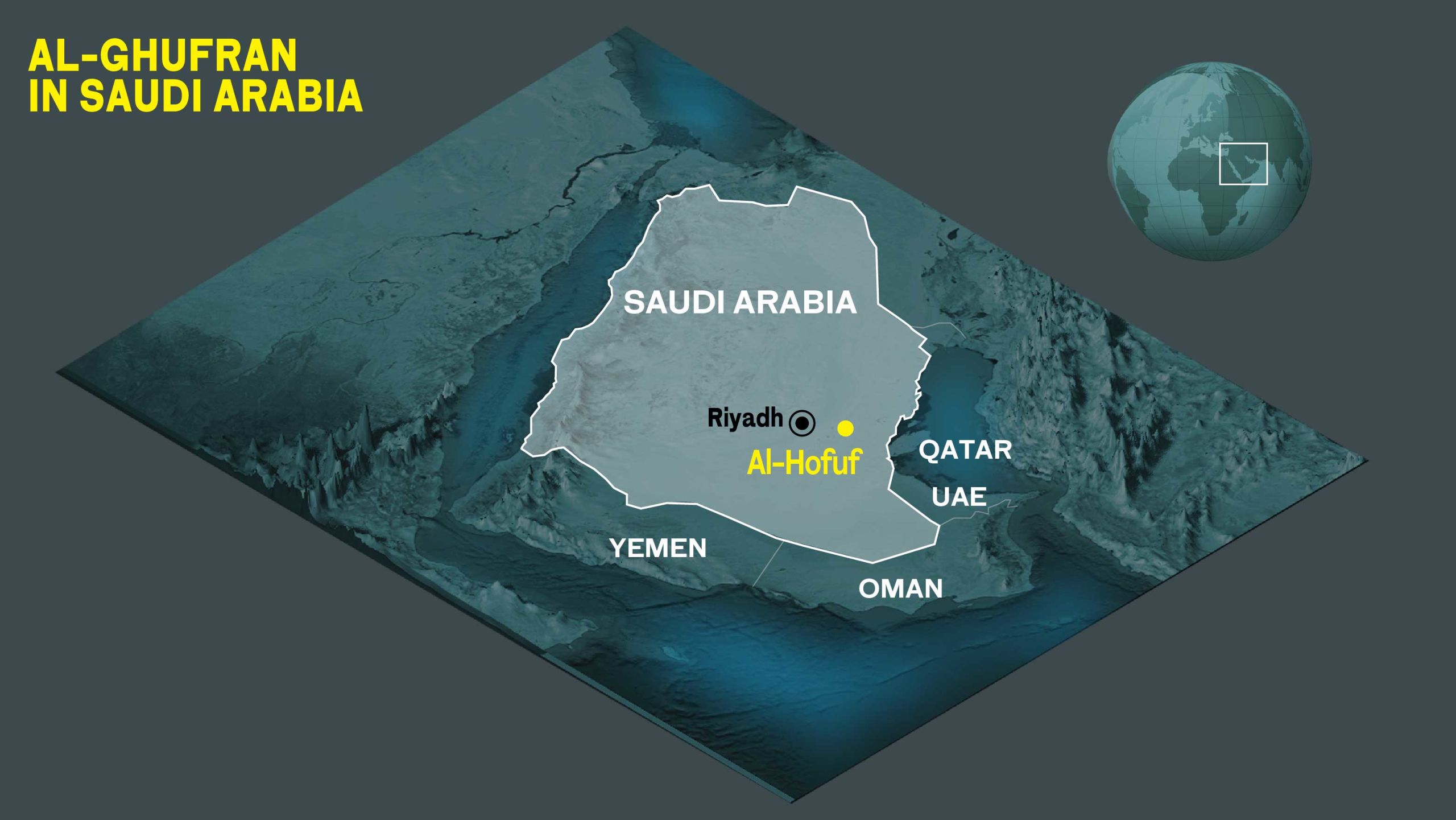
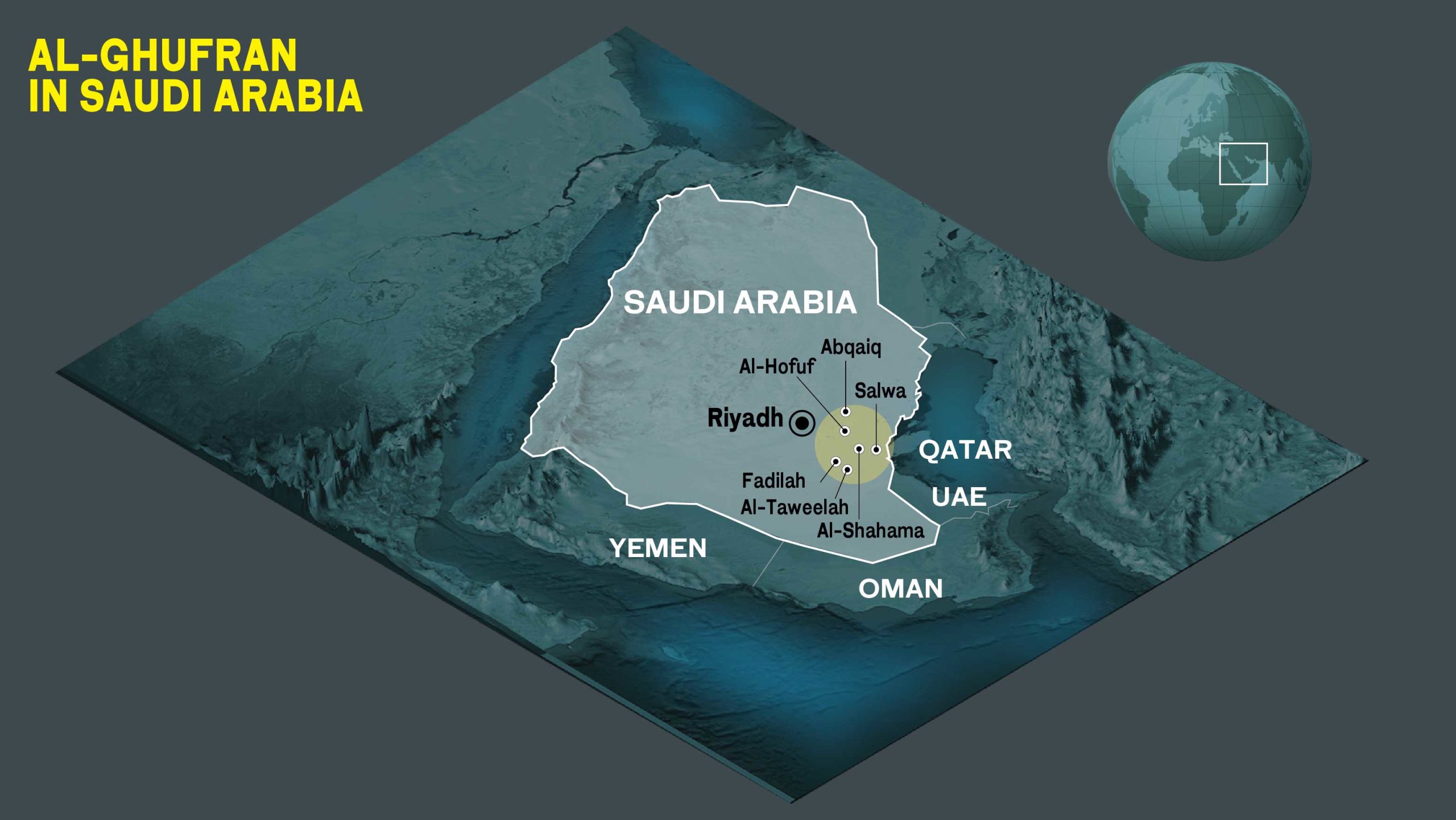
Why did Qatar pick on the members of the Al-Ghufran tribe? “This is what confuses us the most,” says Jaber Al-Kahla. “From 1996 and until 2019, the government has failed to state the true reasons behind revoking our citizenship. The only answer we were given was that Al-Ghufran clan members have dual nationality.
“But this is the real reason: We are accused of participating in the coup.”
In fact, he says, “the revocation of citizenship was a reaction to the participation of 21 members of Al-Ghufran tribe in an attempted coup perpetrated by as many as 121 individuals, representing 17 Qatari tribes. Why target only the Al-Ghufran tribe and not the others?”
Whatever the reason, says Saleh Jaber Al-Humran, “6,000 innocent people are being held responsible for a fault committed by a small group of no more than 21 people. Some of those blamed were at the time studying in the US and others were receiving treatment in Germany. They have also held liable for the coup a widow whose oldest child is six.
“The Qatari government says that it withdrew our citizenship because (we had) dual nationality. But you can find people with dual nationality in all tribes, so it is not a question of dual nationality. This is a malicious and vengeful act by Hamad bin Khalifa.”
Historically, members of the Al-Murra tribe, which is the mother tribe of Al-Ghufran, were scattered throughout western Qatar, in areas including Wadi Jallal, Al-Kharra and Al-Sharqi, and in parts of neighboring eastern Saudi Arabia, including Abqaiq, Al-Hofuf and Al-Taweelah.


However, after Qatar became an independent state in September 1971, the tribe was divided in two. After the coup, those members of the tribe who lived in Qatar were forced to move to Saudi Arabia. Even though they had lived in Qatar for generations, and long before it had become a state, it was argued that they weren’t considered nationals.
Jaber Al-Kahla believes the Al-Ghufran were singled out as scapegoats to allow the new emir to save face. “My view is that it was only seven or eight months after Sheikh Hamad had deposed his father and taken control of Qatar and it was not good for his image around the world to disclose that 17 tribes took part in the coup and that he was rejected by the majority of the Qatari people. So he blamed the Al-Ghufran tribe.”
Amjad Salfiti, a UK-based human rights and civil liberties lawyer, believes that the continuing persecution of the Al-Ghufran is not driven by Sheikh Tamim bin Hamad, who took over as emir after the retirement of his father, Hamad bin Khalifa, in 2013, “but by the old guard who are representative of the father, who is still keen on punishing people.”
Lawyer Amjad Salfiti explains the case.
Regardless of the views of Sheikh Tamim on the matter, or his ability to rein in such vindictive behavior, the unrelenting persecution of tens of thousands of Qatari citizens is starkly at odds with the country’s efforts to present itself as a reasonable member of the global community. Welcoming the world to Doha for the World Athletics Championships and for the 2022 FIFA World Cup while at the same time barring its own citizens from the land of their birth is jarringly incompatible.
The suspicion that the Al-Ghufran were singled out was shared by Chase Untermeyer, the US envoy to Qatar from 2004 to 2007. In a secret cable sent to Washington in May 2005 — later disclosed as part of a cache of US diplomatic messages released through WikiLeaks — the ambassador suggested the enmity lay in the fact that “this tribe has strong links to Saudi Arabia and the members are of Saudi origin.”
There was, wrote the ambassador, speculation that the campaign of revocation was being stepped up “as part of the government’s preparation for upcoming elections and concerns about Saudi interference in Qatari politics.
“The Al-Murra (of which the Al-Ghufran are a part) is the largest tribe in Qatar and it is alleged that there is some apprehension that the tribe will form a large voting bloc in the new parliament. Further, given the Saudi influence and links to this tribe, there is concern Saudi Arabia will use its influence with the Al-Murra tribe to interfere in Qatar’s internal affairs and politics.”
The Al-Murra (of which the Al-Ghufran are a part) is the largest tribe in Qatar and it is alleged that there is some apprehension that the tribe will form a large voting bloc in the new parliament. Further, given the Saudi influence and links to this tribe, there is concern Saudi Arabia will use its influence with the Al-Murra tribe to interfere in Qatar's internal affairs and politics.
Untermeyer’s dispatch made short work of the Qatari government’s claim “that it had been compelled to revoke the nationality of these Qataris because they are dual nationals who have refused to comply with a long-standing requirement to surrender one of their two nationalities.”
Heads of families had received letters informing them that their nationality had been revoked and that they “must then sign a document, agreeing to give up all rights to Qatari nationality and citizenship.” On signing, “these individuals must either leave the country if they have a second nationality or find a Qatari sponsor in order to remain in Qatar. Some of those who have refused to sign the document relinquishing their nationality have been imprisoned.”
In fact, wrote Untermeyer, “Qatari law does not appear to prohibit dual nationality, but does state that ‘Qatari nationality can be withdrawn from any of its holders’ if the individual has ‘acquired another nationality.’
“But according to numerous sources, thousands of Qataris possessing dual nationality with the full knowledge of the government of Qatar have not been ordered to drop their non-Qatari nationality. Sources further claim that not all the individuals whose nationality the government has revoked had dual nationality.”
Noting that the embassy had “formally expressed concern about this practice and requested a fuller explanation of this policy,” the US envoy highlighted its impact on thousands of Qatari citizens.
“It is alleged that approximately 6,000 to 10,000 people have lost Qatari nationality through revocation,” he wrote. “Those holding government employment have lost jobs, and their entire families lose government benefits (housing, education, employment, health, etc.) for which they were eligible as citizens of Qatar. Many whose nationality has been revoked are residing in Qatar as stateless people (‘bidouns’) who cannot travel out of the country.”
Drewery Dyke explains how many Al-Ghufran were left stateless.
According to Drewery Dyke, chair of the UK-based Rights Realization Center, which focuses on human rights in the Gulf states, Iran and Afghanistan, the process of depriving people of citizenship began in earnest in October 2004, following a government decree.
The impact of the decision, he says, should not be underestimated. “Shortly thereafter the authorities started removing people from their jobs, they were deprived of education, taken out of schools, they were no longer able to access medical services, had their bank accounts closed and were no longer allowed to own property. They were made invisible. They were made non-people.”
They were made invisible. They were made non-people.
Dyke says that it is “very difficult” to discover exactly how many members of the Al-Ghufran clan have been left stateless. The original decree targeted 927 heads of households and all their dependents, “around 5,000 people.” But since then, “given the natural growth of those communities and those families,” some estimate the number has grown to 10,000.
That, says Amjad Salfiti, a UK-based human rights and civil liberties lawyer, is a figure that likely takes into account only the members of the Al-Ghufran clan. Other estimates put the total number of people from various tribes expelled or stripped of Qatari citizenship at more than 50,000 — and “they have all been subjected to draconian measures.”
All citizens of any country, he says, “are covered by international law in that their rights to citizenship should be protected. And as soon as a state takes any action to deprive a person of his nationality, whether as a group or individually, that would be contravening international human rights.
“What has happened in this instance is a collective form of punishment, which again is prohibited by international law — an offense has been committed by the state against its own citizens.”
The fightback
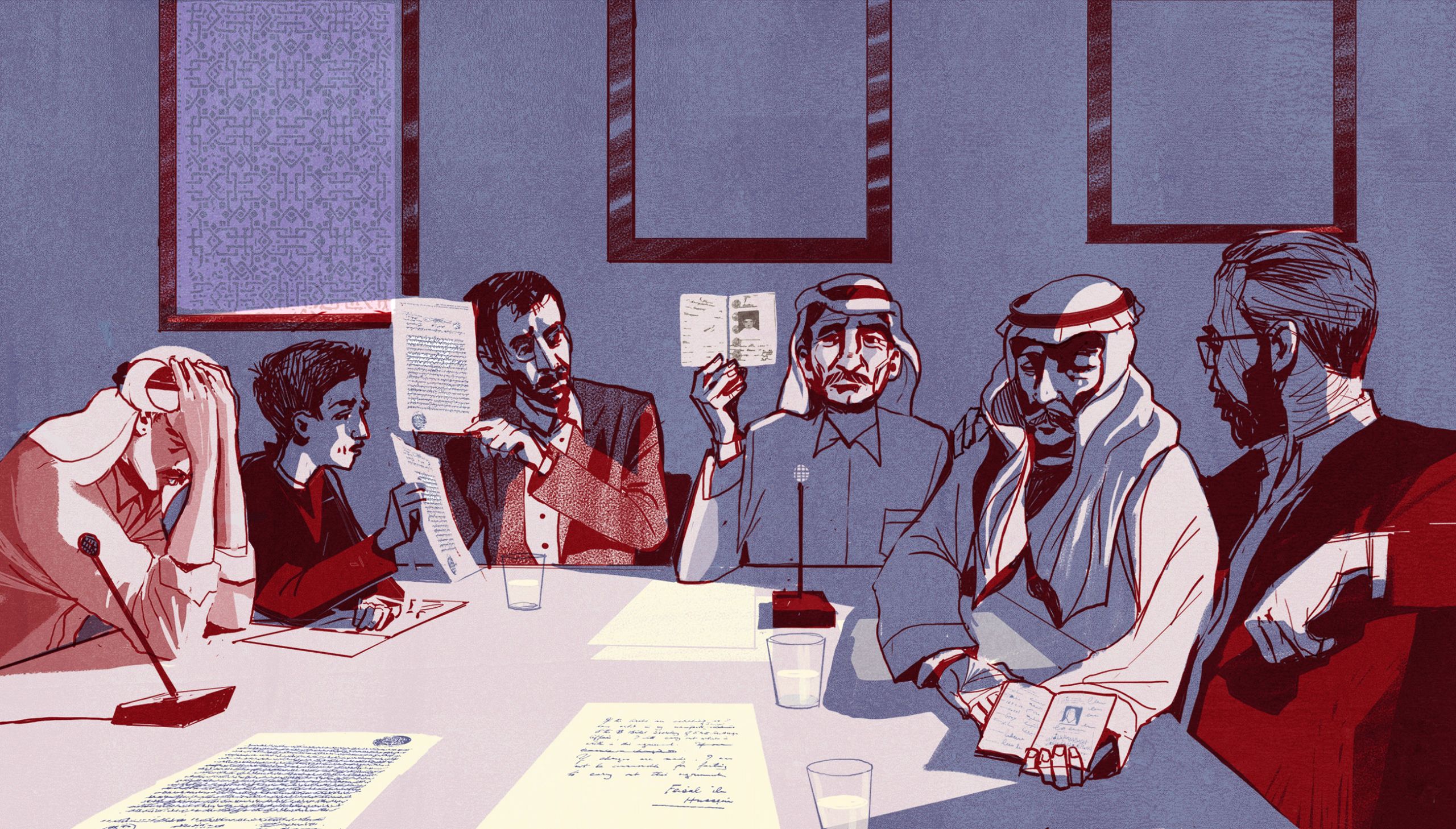
In September 2018, a delegation of the Al-Ghufran took their case to the 39th session of the UN Human Rights Council in Geneva, appealing for help from the special rapporteur on the rights of indigenous peoples at the Office of the High Commissioner for Human Rights (OHCHR). At the time, they said they had decided to appeal to the international community “only after the government of our own country closed all ways of appeal, and did not engage or listen to our demands.”
In Geneva, one member of the delegation, Gaber Saleh Al-Ghufrani, made an emotional appeal to Qatar’s leadership and his fellow countrymen. “We call on the elders of the honorable Al-Thani family and to the generous and righteous people of Qatar and to the Al Murra tribe, known for their nobility and chivalry,” he said.
“We call on you as your brothers, young and old, elders and children, men and women, inside and outside Qatar, and we appeal to your proud Arab origin because the Qatari government has let us down, made untrue claims about us and stripped us of our rights.”
We call on you as your brothers, young and old, elders and children, men and women, inside and outside Qatar, and we appeal to your proud Arab origin because the Qatari government has let us down, made untrue claims about us and stripped us of our rights.
At a press conference in Geneva Jabir bin Saleh Al-Ghufrani, a tribal elder, said that the Qatari government had “taken away our social, political and economic rights ... I left on a vacation in 1996, and now I can never go back to my country. I can go to any place on this earth, but not my home, not Qatar.”
A spokesperson for OHCHR told Arab News that after meeting with representatives of the Al-Ghufran, its staff had subsequently “raised their concerns to the National Human Rights Committee in Qatar.”
It was an unexpected response by the OHCHR that will have dismayed many members of the Al-Ghufran, who in their petition to the High Commissioner made plain their concern that Qatar’s National Human Rights Committee was little more than another instrument of the state aligned against them.
In their petition the tribe’s representatives had written that “the Qatari authorities, ranging from the Emir of Qatar, the Prime Minister, the Attorney General, the President of the National Committee for Human Rights, senior security officials and dignitaries, are aware of the discrimination … and those senior officials are deeply involved in this crime.”
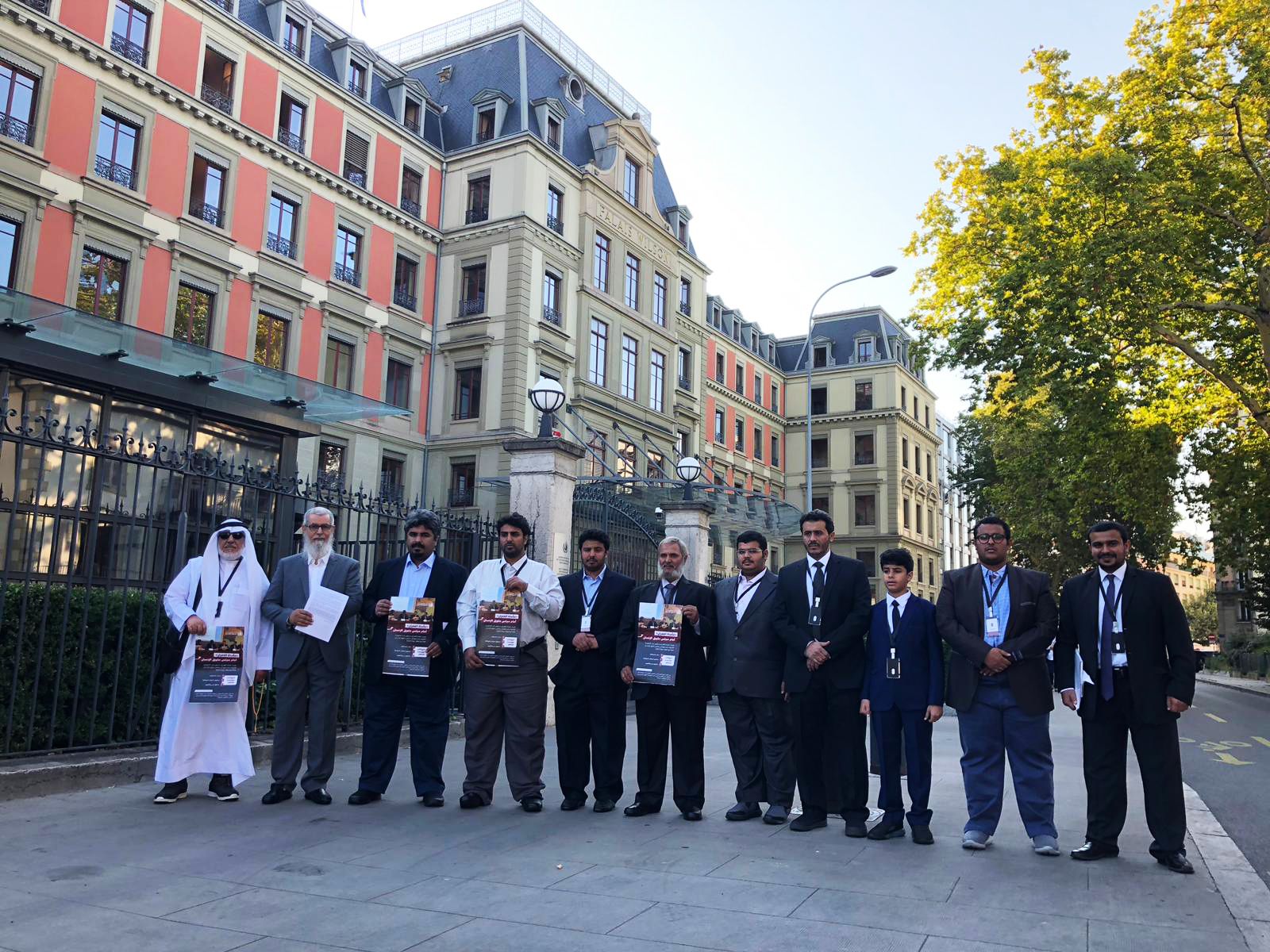
Members of the Al-Ghufran in Geneva, where they took their case to the Office of the High Commissioner for Human Rights in 2018.
They added: “We hope that your intervention will result in achieving human justice on the ground through your objective and impartial treatment of this suffering, and not to only depend on the National Human Rights Committee of Qatar which has unfortunately became an obstacle in our struggle for justice.”
The OHCHR told Arab News it had received a response from the committee but could not share it because “this information is confidential.”
It wasn’t the first time the plight of the Al-Ghufran had been brought before the UN. In a report to the UN’s Human Rights Council in 2010, Amnesty International noted that of 20 people under sentence of death in Qatar, 17 had been convicted of involvement in the 1996 attempted coup “following unfair trials.” They had originally been sentenced to life imprisonment, but their sentences had been increased to the death penalty by Qatar’s Court of Appeal in May 2001.
At the time of the original trial, Amnesty International’s report noted, “many of them claimed that ‘confessions’ had been extracted under torture.”
A report to the UN by the Swiss-based human-rights organization Alkarama, also submitted to the Human Rights Council as part of its periodic review of rights in Qatar, said that between 1996 and 2000 dozens were arrested as part of the investigation into the failed coup. Other sources say that more than 300 suspects from more than 17 Qatari tribes were arrested. In 1997, 121 people, including 21 members of the Al-Ghufran, went on trial. The trials ended in 2001, and the systematic withdrawal of Al-Ghufran nationality began in earnest in 2004.
According to the summary of submissions published by the Human Rights Council in 2010, “a code governing nationality was promulgated in 2005 (Law No. 38 of 2005)” — ironically, the same year a department for human rights was established within the Ministry of Interior — under which “the emir is given sweeping powers to grant, revoke or reinstate Qatari nationality.”
Amnesty International reported that the law had been used “against a number of individuals and tribes to target political opponents,” including “as many as 6,000 members of the Al-Ghufran branch of the Al-Murra tribe ... on the ground, believed to be spurious, that they were nationals of other countries.”
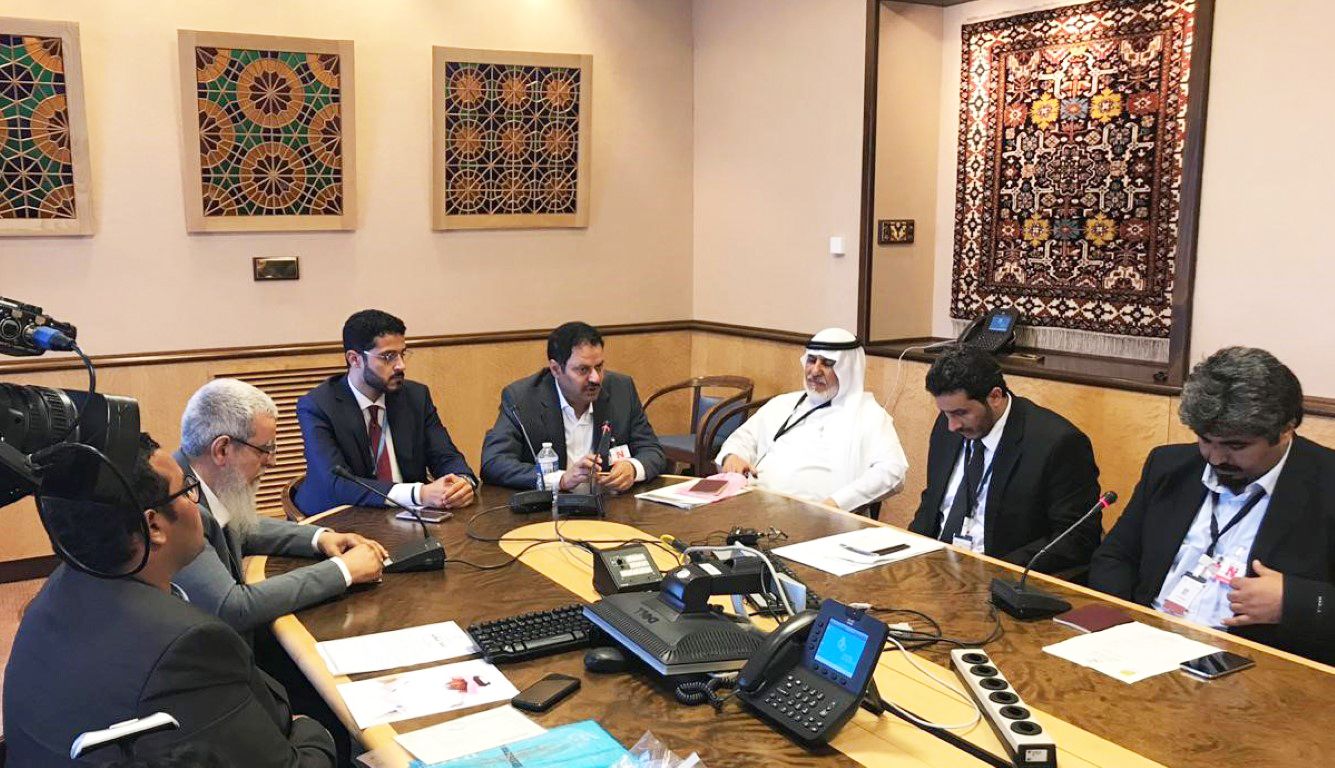
Members of the Al-Ghufran at a meeting in Geneva.
About 4,000 were believed to have had their Qatari nationality subsequently reinstated, but “in the majority of cases, their birthplace had been altered to state that they were born in a neighboring country and therefore did not have the right to vote in elections in Qatar.”
In 2010, Saudi King Abdullah intervened with Qatar on behalf of 21 members of the Al-Ghufran tribe who had been sentenced to life imprisonment. He succeeded in having them freed and flown to new lives in Saudi Arabia.
According to former Qatari police officer Rashed Al-Amrah, who along with thousands of other Al-Ghufran was stripped of his citizenship, a delegation from the tribe had taken their case to the king. “They told him that the detainees had done nothing but have dual nationality, and Sheikh Hamad bin Khalifa Al-Thani had accused them of trying to kill him when Sheikh Khalifa tried to return to Qatar.”
There was, they told the king, no evidence to substantiate the accusations against them. The delegation reminded the king that they had first tried appealing to him a year earlier, but without success. “King Abdullah told them that Sheikh Hamad had lied to him,” says Al-Amrah. “He said, ‘He lied to me two times, but hopefully you will hear good news soon.’”
One month later, King Abdullah sent his son, Prince Mutaib, to Qatar. “He asked him to tell Sheikh Hamad that ‘King Abdullah sends his greetings and asks you to release the Al-Ghufran tribe.’ The answer was positive.”
Rashed Al-Amrah speaks about how the late Saudi King Abdullah intervened in the case.
Later, the released men recalled how they were told to collect their belongings and, still wearing their prison clothing, were taken to the airport. “They saw the Saudi plane and Prince Mutaib standing at its door,” says Al-Amrah. “He received them and welcomed them one by one. The plane landed in Jeddah, and in the evening they met with King Abdullah and their suffering ended, thanks to King Abdullah’s confidence in their innocence.”
An end in sight?
Many hope that 2019 is the year that will bring an end to the suffering of the Al-Ghufran.
Over the years the clan has won the support of groups including the Arab Federation for Human Rights, the Egyptian Organization for Human Rights, the Manama Center for Human Rights, the US-based World Aid Organization for Human Rights and Amnesty International, and in May New York-based Human Rights Watch took up their case.
Stateless members of the clan, reported the NGO, “are deprived of their rights to decent work, access to health care, education, marriage and starting a family, owning property and freedom of movement.
Rashed Al-Amrah explains how members of the Al-Ghufran clan have been persecuted.
“Without valid identity documents, they face restrictions on opening bank accounts and acquiring drivers’ licenses and are at risk of arbitrary detention. Those living in Qatar are also denied a range of government benefits afforded to Qatari citizens, including state jobs, food and energy subsidies, and free health care.”
Without valid identity documents, they face restrictions opening bank accounts and acquiring drivers’ licenses and are at risk of arbitrary detention. Those living in Qatar are also denied a range of government benefits afforded to Qatari citizens, including state jobs, food and energy subsidies, and free health care.
After interviewing nine members of three stateless families of the clan living in Qatar and one person from a fourth family who lives in Saudi Arabia, the NGO called on the Qatari government to “immediately end the suffering of those left stateless and give them and those who have since acquired other nationalities a clear path toward regaining their Qatari citizenship.”
Human Rights Watch wrote to the Qatari Ministry of Interior to raise its concerns, but received no response. (Arab News also tried to reach the ministry, and Qatar’s media office, but they did not respond to a request for comment.)
In September, the rapporteurs of the UN’s Working Group on the Universal Periodic Review of Qatar’s human rights record published their report. It recorded Qatar’s view that the revocation of the nationality of members of the Al-Ghufran “had not been a frivolous or unjust measure,” but one “carried out in accordance with the law, which prohibited dual citizenship.”
The report, a lengthy document with observations from dozens of states, also recorded Saudi Arabia’s appeal to Qatar to “take all necessary and immediate measures to restore the nationality to the Al-Ghufran tribe and ... to return the property and money of the Al-Ghufran tribe, which have been confiscated.”
Many of the displaced and dispossessed Al-Ghufran are now pinning their hopes for a resolution to their 23-year ordeal on a high-level session on statelessness being convened by the UN Refugee Council on Monday, Oct. 7. The date marks the mid-point of the UN’s “I Belong” campaign to end global statelessness by 2024. The UN says heads of state and government representatives will be asked “to highlight key achievements in addressing statelessness since the I Belong campaign was launched in November 2014 and to deliver concrete pledges to address statelessness in the remaining five years of the campaign.”
This, says Drewery Dyke, chair of the Rights Realization Center, is Qatar’s chance to do the right thing.
Drewery Dyke talks about Qatar's human rights challenges.
“It is incumbent upon the government of Qatar to make good on the commitments expressed in previous years, or certainly hinted at, in respect to the I Belong campaign, and undertake a renationalization program for all those Al-Ghufran clan members who wish to return to their country.”
At the 2011 UN Ministerial Intergovernmental Event on Refugees and Stateless Persons, more than 60 states made concrete pledges to address the issue of statelessness. Qatar, however, limited itself to a statement that conspicuously skirted the central issue: “We renew the state of Qatar’s commitment to the noble humanitarian principles of the UNHCR and its pledge to continue providing necessary support to UNHCR’s different activities to ensure a dignified life for all.”
In Geneva on Oct. 7, “all eyes will be on the government of Qatar,” says Dyke.
“The Rights Realization Center, the Institute of Statelessness and Inclusion and other human rights groups, and not least the members of the Al-Ghufran community themselves, are calling on Qatar to allow back into the country and to renationalize all those people who were arbitrarily denationalized unfairly, in violation of international human rights standards, and for them to be (restituted in) recognition of what they have been through.”

Members of the Al-Ghufran in Geneva, where they took their case to the Office of the High Commissioner for Human Rights in 2018.
Members of the Al-Ghufran in Geneva, where they took their case to the Office of the High Commissioner for Human Rights in 2018.

Members of the Al-Ghufran at a meeting in Geneva.
Members of the Al-Ghufran at a meeting in Geneva.
Credits
Executive producer: Mohammed Al-Sulami
Creative director: Simon Khalil
Writer: Jonathan Gornall
Designer: Omar Nashashibi
Illustrations: Alex Green
Graphics: Douglas Okasaki
Cameramen: Mohammed Al-Baigan, Seif Almutairi
Videos: Ali Noori, Yasser Hammad, Rawan Alkhelawi
Translation: Sarah Sfeir
Research: Sarah Glubb
Photo research: Sheila Mayo
Copy editor: Les Webb
Social media: Mohammed Qenan
Editor-in-Chief: Faisal J. Abbas

More stories




